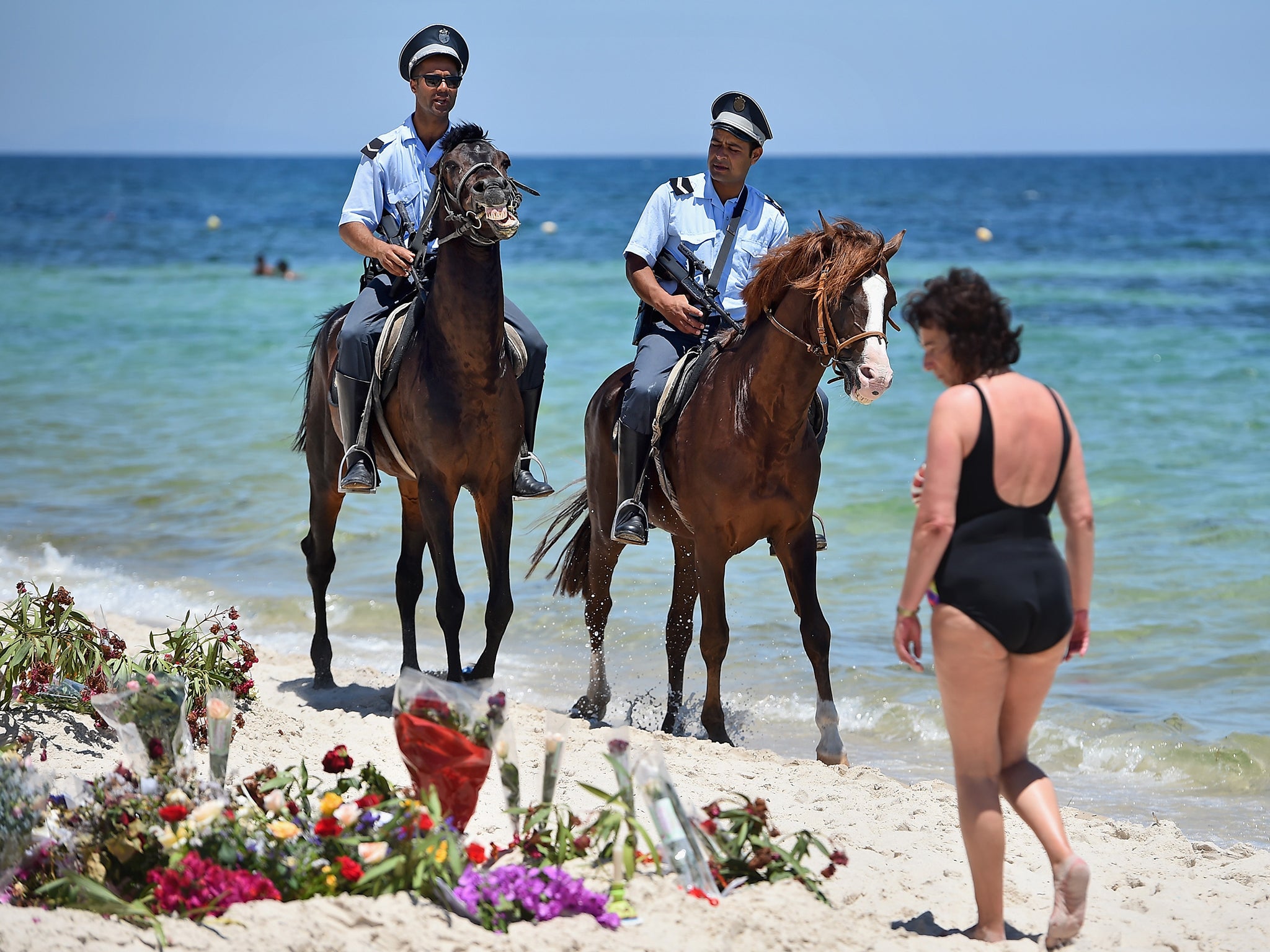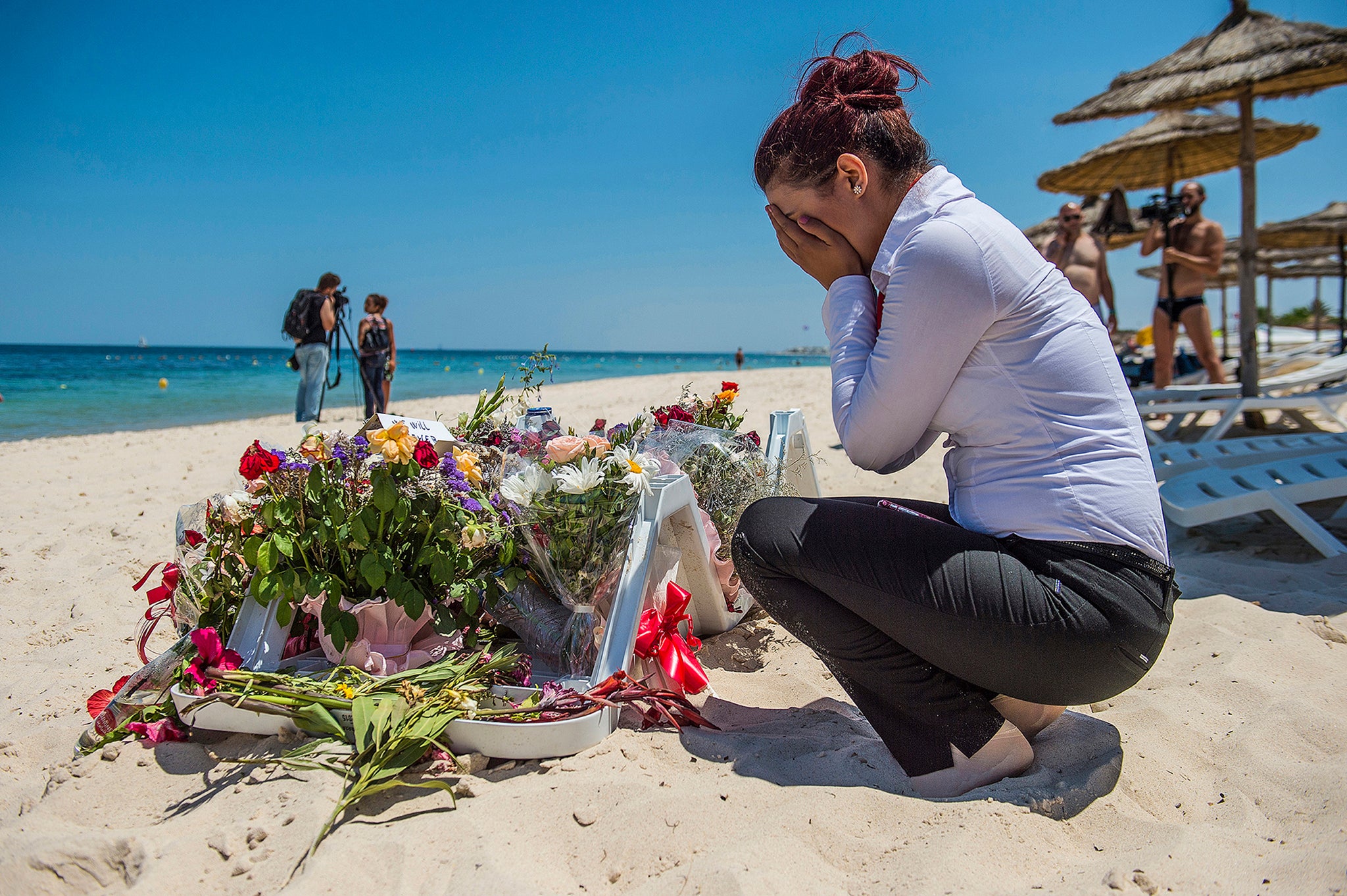Sousse attack one year on: Foreign Office refuses to ease Tunisia travel advice on anniversary of beach atrocity
It is felt that the country’s long, leaky border with Libya increases the risk of further attacks

Your support helps us to tell the story
From reproductive rights to climate change to Big Tech, The Independent is on the ground when the story is developing. Whether it's investigating the financials of Elon Musk's pro-Trump PAC or producing our latest documentary, 'The A Word', which shines a light on the American women fighting for reproductive rights, we know how important it is to parse out the facts from the messaging.
At such a critical moment in US history, we need reporters on the ground. Your donation allows us to keep sending journalists to speak to both sides of the story.
The Independent is trusted by Americans across the entire political spectrum. And unlike many other quality news outlets, we choose not to lock Americans out of our reporting and analysis with paywalls. We believe quality journalism should be available to everyone, paid for by those who can afford it.
Your support makes all the difference.On a sunny beach in Tunisia on 26 June last year, 30 British holidaymakers were among those killed by a lone gunman from so-called Islamic State.
One year on from Seifeddine Rezgui Yacoubi’s murderous attack at the resort of Sousse, the Foreign Office insists: “A further terrorist attack is highly likely.” It has rejected repeated pleas from the government in Tunis to ease its advice against travel.
In the wake of the attack at the Riu Imperial Marhaba Hotel, the Foreign Office warned against all but essential travel to the North African nation. It ordered UK holiday companies to organise an airlift to get British holidaymakers out.
Since then, Tunisia has been a no-go zone for UK tourists, with profound effects on the tourism economy. Hundreds of thousands of Tunisians depend on tourism for their livelihood.
The massacre on the beach was the second terrorist attack aimed at tourists in three months. In March, 21 people – mainly cruise passengers on an excursion – died at the hands of gunmen at the Bardo Museum in the capital.
The Foreign Office believes that Tunisia’s long, leaky border with Libya increases the risk of attack. It says: “On balance, we do not believe the mitigation measures in place provide adequate protection for British tourists in Tunisia at the present time.”

Tarek Aouadi, UK director of the Tunisian National Tourist Office, said: “The FCO knows what it is doing. Human lives have been lost and security must come first. But we didn’t expect it to be this long. Banning a destination gives a sign to the terrorists they are winning.”
All mainstream holiday companies are governed by Foreign Office advice, and anyone travelling to an area on the no-go list will find their travel insurance invalidated.
Flights continue to operate between Heathrow and Tunis on Tunisair.
Other nationalities are travelling to Tunisia in much greater numbers – notably the French, the Italians and the Germans. The US State Department travel advice is much milder than the Foreign Office’s, warning against “travel to southeastern Tunisia along the Libyan border as well as the mountainous areas in the country’s west”. Washington urges caution in other areas, “especially those heavily frequented by tourists”.
Join our commenting forum
Join thought-provoking conversations, follow other Independent readers and see their replies
Comments